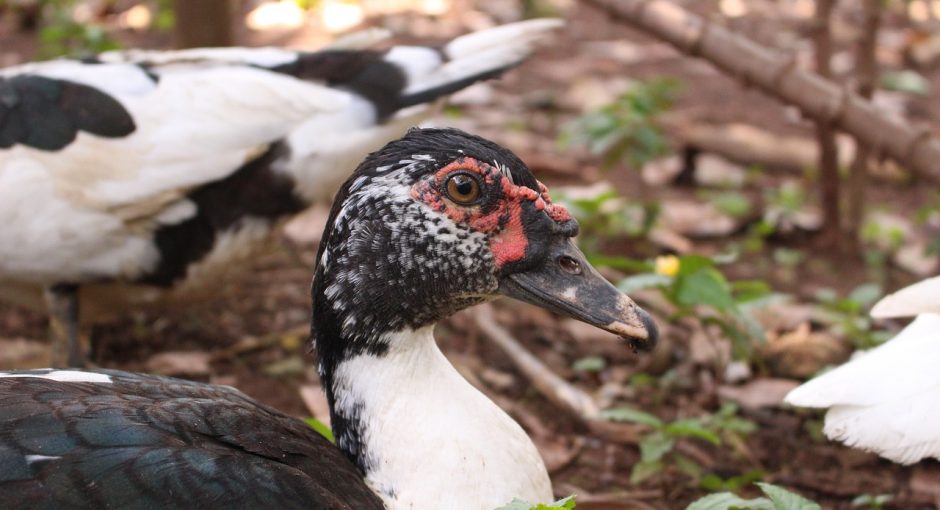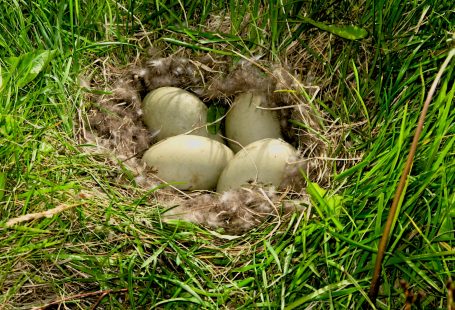For a half century they’ve spread their wings — and waste — across South Florida’s backyards and swimming pools.
They’re ugly and ungainly, and just the mention of their name can engender delight or disgust: Muscovy ducks.
Skirmishes between lovers and haters of the wattled invaders have existed since the ducks made their way here from South and Central America. But in recent months, clashes have aggravated the enduring enmity between Muscovy fans, who like to feed them, and foes, who’d like to exterminate them.
On May 18, a resident of the Reflections at Pembroke Pines condos was awakened in the middle of the night to see a trapper hired by property management bludgeoning mother Muscovies to death.
She confronted the trapper. Police were called, but no charges were filed — it’s not illegal to kill the ducks, even with such methods as clubbing them to break their spine.
Another Reflections resident said he was greeted by orphaned ducklings the morning after.
Check out some of species that are on Florida’s list. All information gathered from the Florida Fish and Wildlife Conservation Commission
“There were a dozen young ducklings outside my window in the morning, calling out for their mother, ” said resident Ron Rollins.
Muscovy ducks are considered an invasive species, according to the Florida Fish and Wildlife Conservation Commission. Jamie Feddersen, FWC’s program coordinator for waterfowl and small game, estimates there are “tens of thousands” in the state, with high concentrations in urban areas such as South Florida.
From October 2012 through April 2015, the FWC fielded 435 nuisance duck complaints statewide, with 37 from Broward County. Palm Beach County led the state, with 100 calls. One Broward wildlife center receives thousands of injured Muscovies yearly.
Because Muscovies are non-native, they can displace native species from their habitat. They also carry diseases not normally encountered in native birds, such as duck viral enteritis, Feddersen said. That disease had not been seen in Florida until the mid 2000’s, with the first case in Muscovy Ducks from the Tampa area.
“If a disease like that spreads to the wild population it could be devastating, ” he said. “As much as some people like them, they’re not supposed to be here.”
And some take Muscovy eradication to extremes.
Earlier last month in Wellington, a groundskeeper allegedly laughed as he gunned his lawn mower over a flock of 11 ducklings. Two survived. The massacre was witnessed by a 7-year-old boy who cared for and fed the ducks. The landscaper was charged with nine counts of animal cruelty.
Duck disputes can even set human against human.
In Davie last year, a 55-year-old man who was feeding Muscovies from his front yard allegedly tackled, punched and kicked a 65-year-old neighbor who criticized him. The older man suffered a gash on his head that required staples. The Muscovy-loving neighbor was charged with assault and battery.
Then there was the mysterious disappearance in 2013 of hundreds of Muscovy Ducks from the Rock Creek neighborhood in Cooper City. Rumors swirled that they had been given sedatives overnight, rounded up and sold as food. Their fate is still a mystery.
Eunice Sivertsen, 77, took in several of the orphaned Cooper City ducklings. She runs the non-profit Duck Haven in Margate, and has been caring for Muscovies for 35 years. She currently has about 120 injured and abandoned ducks.
They poop freely and noisily throughout her add-on shelter and backyard. Sivertsen spends hours every day washing away the droppings with a water hose, cleaning cages and feeding the animals.
“I wish there were more places like this around the state to take them in, ” she said.
It is illegal to relocate Muscovy ducks, except to a sanctuary such as Sivertsen’s, so trappers kill them in almost all cases. But it must be done humanely.
The wildlife commission accepts certain methods of euthanization, including carbon dioxide poisoning — one of the most popular — pellet guns, or “cervical dislocation, ” which is breaking the neck or spine, usually by hand, or even with a club.
Wildlife advocate Lynne Koenigsberg of Boca Raton said Muscovies should not be killed, by whatever method. “They are beautiful animals that deserve to live as much as any human does, ” she said. “If humans want to feed them, I don’t have a problem with that.”
Noel Hanson, a trapper with Animal Rangers Inc., which operates throughout South Florida, said his company does brisk business removing Muscovy ducks from neighborhoods. Residents’ top complaints: The ducks defecate prodigiously and hang out in backyard pools.
“We average at least 30 removals in any given month, typically physical capture but on rare occasions lethal removal, ” Hanson said. His lethal weapon of choice: A pellet rifle.
And natural predators also keep Muscovies under control. “Some communities are very fortunate, they have hawks or herons that really do knock out babies and keep the population under control naturally, ” Hanson said.
Feeding the ducks, wildlife experts say, has led to a swell in their numbers — and the accompanying skirmishes between duck and human. When left to fend for themselves, the ducks will move on, searching for insects and edible plants. When fed by humans, they stay put.






